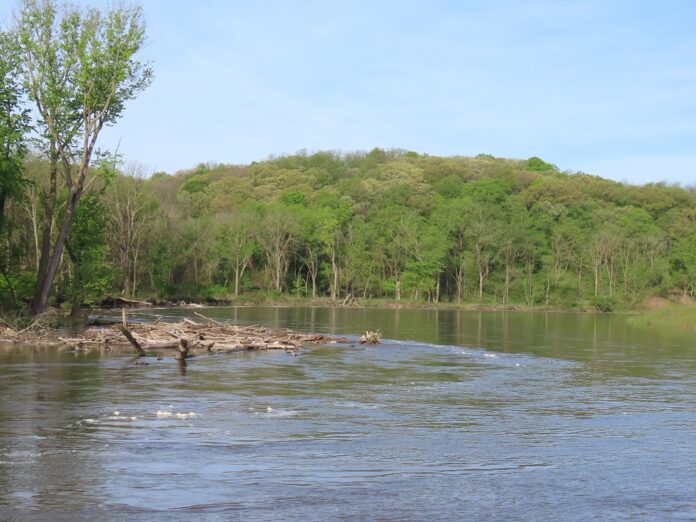
To the editor:
On Monday morning, Aug. 11, 2025, I tested the nitrate level of the Raccoon River at the Perry Boat Ramp. The reading was 16 parts per million (PPM).
For safe drinking water, the Central Iowa Waterworks must reduce the nitrate level to at most 10 PPM although many scientists say that even this level is too high and that amounts below 10 ppm may have long-term health effects.
On the news Monday evening, I was shocked to hear that the U.S. Environmental Protection Agency (EPA) has removed the Raccoon River from the Impaired Waters List. No reasons or data for the river’s removal from the list were given.
The nitrate pollution in the Raccoon River varies with weather conditions and the seasons. In spring and early summer, the nitrate level is higher than during the winter months. But changing from an impaired level of 16 ppm overnight to a level that causes the river to be removed from the impaired waters list is unbelievable.
Since the river is no longer impaired, according to the EPA, the river should now be safe for swimming and other relational uses. That means you can get the water in your ears, eyes, mouth and private parts without any ill effects.
A few years ago, the Iowa DNR dropped the water-testing program and closed down the data-collecting center. The state also stopped collecting electronic pollution data from several rivers across the state because it was “too expensive.”
Environmentalists believe the reason these programs were dropped was because our state leaders did not like the data they were seeing collected by volunteers. A retired Iowa DNR official also told me program was dropped because environmental groups were using this easily accessible data to criticize Iowa officials for their inaction in reducing Iowa’s water pollution problem.
I now send my collected data to the national Izaak Walton League data collection center in Washington, D.C.
The Iowa Department of Agriculture and Land Stewardship is depending on its Voluntary Nutrient Reduction Strategy, encouraging farmers to use various conservation practices to reduce nitrate runoff. This strategy is not working. During my years of testing water in the Raccoon River, I have seen a general increase in the nitrate level in the river.
This spring and early summer it has been the highest ever.
The Raccoon River is a main source of drinking water for 600,000 people. The Central Iowa Waterworks had to put restrictions on water usage for the first time this year because the nitrate-filtering equipment could not keep up with the public’s demand for safe water.
It is time for Iowans to demand that our elected officials pass meaningful laws and regulations that will clean up Iowa’s waterways, reduce the nitrate pollution problem and make the rivers safer for recreation.
Ray Harden
Perry
Ray Harden had been testing nitrate levels in the Raccoon River for more than 20 years.
He was trained as a water tester by the Iowa Department of Natural Resources (DNR) and certified by the DNR as a volunteer Iowa water tester. The longtime educator in the Perry school system also has a Master Conservationist certificate from Iowa State University and a master’s degree in science.


















Ray Harden’s LTE pointed out a huge problem to Iowa and the quality of its drinking water. Soon we will all see the results of people’s contact with nitrates in our drinking water. Take a close look as Iowa players, fans and opposing teams wave at the young cancer victims in the nearby children’s hospital. Realize that your elected officials can take action to solve the problem. Ask those you are considering voting for what they hope to do to aid Iowa’s children and adults, other than waving and offering sympathy.